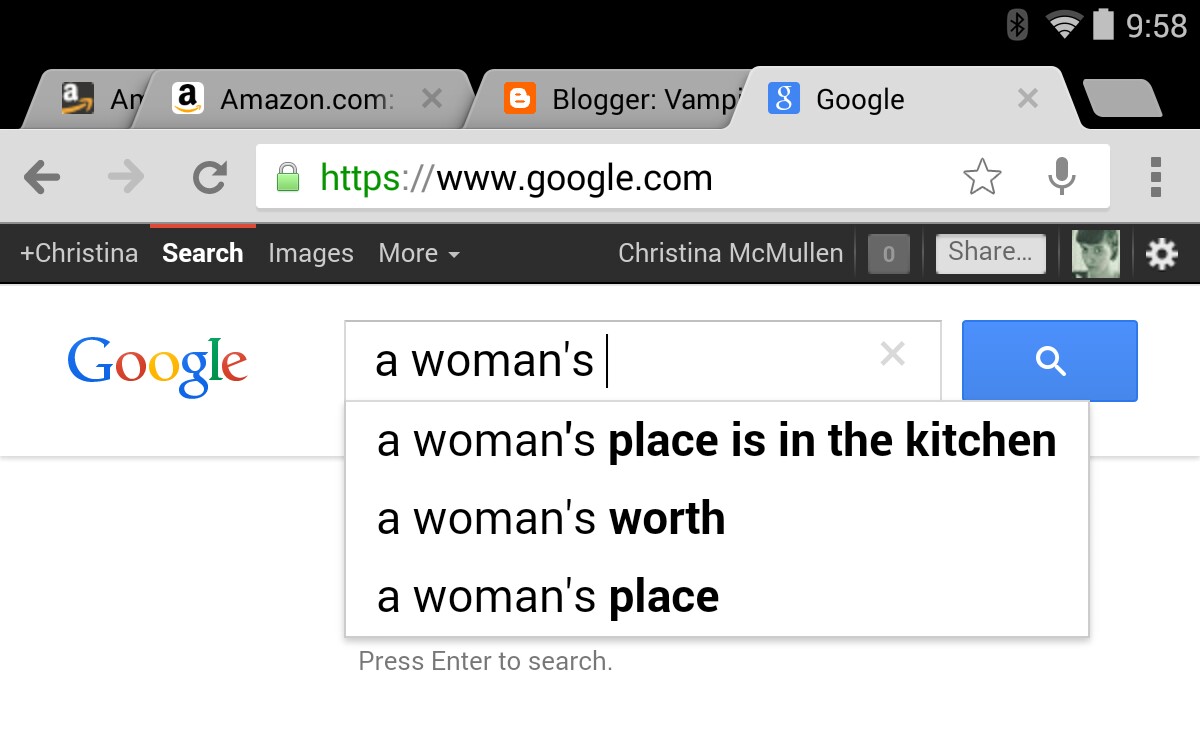Jane, Get Me Off This Crazy Thing
You already know that I love looking back at what people in the past thought the future would look like. Of course. It's fun to see the mylar space suits we are supposed to be wearing while we fly our cars and talk to our televisions. But inevitably, there are some 1950s sensibilities that rather jarringly remind me that progress wasn't exactly progressive. The family of the future was always, without fail, portrayed as white and middle class. Women of the future are always featured using the latest in high tech gadgetry. Well... Kitchen gadgetry. Silly women didn't care about computers. Heck, Jane Jetson was a homemaker with a robot housekeeper, yet what was her role? Oh, that's right, homemaker and paycheck spender.
As much as I talk about my love for the golden age sci-fi novels, it's tough to look past the blatant sexism that persisted throughout the era. Even my beloved Martian Chronicles has a "funny" story about a lonely man who finally hears a woman's voice, only to meet her and find her physically undesirable. If I were to explore all of the issues I have with the way women were portrayed in the early days, we'd be here all night.
But that's all in the past...
But that's all in the past...
 |
| Um... |
Yes, the not so progressive future remains with us, and unfortunately, it persists in science fiction as well. While there are more women writing sci-fi, how many of them are using their own names? Maybe it isn't as bad as when Alice Norton had to write under the name Andre Norton just to be taken seriously, but a quick glance through Amazon reveals a lot of first initial last name or first and middle initial last name authors out there.
There's also the way female authors are portrayed in the media. A male author without a day job is an author, plain and simple. A woman is often portrayed as "stay at home mom turned author" or "housewife turned author." Even JK Rowling (note the initials, they were a suggestion from her agent to appeal to a male audience) has been described as a "Unemployed single mother turned author."
When I made the decision to quit my job and write full time, a lot of people made comments that amounted to jealousy. Not jealousy of the fact that I was finally doing what I love for a living, but jealousy that I could sit at home and "not have to go to work." I go to work. I write. This is my job. I get up, I turn on the computer, and I write until my 'shift' is over. Then, I share the housekeeping responsibilities with my husband. To be fair, he does more of the "women's work" than I do.
It's tough. There are still book covers in the genre that feature scantily clad women with gravity defying breasts. There are still female characters that seem strong, but realize they need a man to save them in the end (the taming of the cast iron bitch, as I like to call that trope). And let's not forget everyone's favorite: Stockholm Syndrome.
It can be frustrating, especially as a woman writing science fiction that does have a romantic element. It's tough to give the audience what they want while maintaining the integrity of the strong female lead. This is one of the biggest reasons why I chose to self publish and why I almost exclusively read independently published books. There are no agents or publishers telling us what we can and can't write. Here, in my ever increasing community, women are finally finding their place, and it sure as hell isn't in the kitchen.
Yes, and sadly, that's only the beginning!
ReplyDelete